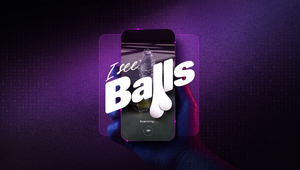
Mucinex's Super Bowl Campaign Aims to Tackle #Supersickmonday

On Monday, February 5, nearly 14 million employed Americans who plan to watch this year’s Big Game1 intend to call out of work in what historically has been the biggest “sick day” of the year. This phenomenon is not caused by a cold or cough, but perhaps a collective feeling of wanting to recover the day after the Big Game. Mucinex, America’s largest over-the-counter brand,* gives a nod to this “sick day” trend, #SuperSickMonday.
A recent survey commissioned by Mucinex and The Workforce Institute at Kronos Incorporated revealed that 1 in 5 employed Americans (19 percent) claimed they have previously missed work on the Monday after the Big Game. Additionally, 25 percent feel that the Monday after the Big Game should be considered a national holiday.
“We know that a late night watching the Big Game can make it hard to get up and go to work the next day,” said Brian Dolan, Equity Lead for U.S. Health at RB. “As a brand that takes pride in helping fight sickness and avoid missed time at work, we decided to give a wink to this once-a-year cultural phenomenon, when people choose to take a personal day on their own terms.”
Additional results from the survey revealed:
• Game time decision – 60 percent of employed Americans say if they were going to call out sick or take a personal day, they would decide to call out after the game has started/the following day.
• Moms and dads DO take sick days – 21 percent of employed parents who plan to watch the Big Game (and have children under 18 years old) versus only 5 percent of employed non-parents that plan to watch the game say they are likely to call out "sick" the following Monday.
• Cough, cough. “I’m not feeling great, boss.” Cough, cough. – When asked about the most common cold/flu reason they have used or heard someone else use to call out of work when not actually sick, employed Americans gave these top excuses:
• Fever (26 percent)
• Sore throat (14 percent)
• Headache (12 percent)
“We’ve been researching the Big Game’s effect on the workforce for more than a decade and while numbers may fluctuate each year, one clear fact remains: #SuperSickMonday is often the biggest day in America for calling out of work,” said Joyce Maroney, Executive Director, The Workforce Institute at Kronos Incorporated. “Employers are likely to notice quieter workplaces come Monday, and our advice is to embrace the Big Game and use it as an opportunity to build camaraderie in the workplace, while encouraging employees to communicate their likely need for a day off well before kickoff.”
The tongue-in-cheek campaign kicked off this week with a teaser television creative (:15 spot – “Calling In”) and builds up to a post-game television commercial airing Sunday evening on NBC. The ad highlights #SuperSickMonday by depicting the letdown people experience after the Big Game. The Mucinex anti-hero, Mr. Mucus, represents the annoyance and misery that sickness brings, so he is naturally offended by people taking a “sick day” when they’re not actually sick. The tagline playfully conveys to those taking off: Enjoy your “sick day,” America. And when you’re really sick, take Mucinex.
“We’ve had fun with this campaign, giving a lot of the power to consumers and influential personalities in sports and comedy to talk about what #SuperSickMonday means to them,” continues Dolan. “The timing of our ad right after the game syncs up with the immediate nationwide feeling of post-game blues, latching on to that moment when you begin to rationalize calling out sick. We think this approach will help us increase brand awareness at a time of year when lots of brands are advertising in a more traditional way. By giving people a laugh now, we hope they will turn to Mucinex when they’re actually sick.”
Mucinex’s #SuperSickMonday is an integrated marketing campaign, developed by McCann.
Creative Credits
Agencies
McCann New York/McCann Humancare
Tom Murphy & Sean Bryan / Co-Chief Creative Officers
Nathy Aviram / Chief Production Officer
Danielle Korn / Director Broadcast Production
Nic Howell / Group Creative Director
Geoff Bentz / Group Creative Director
Adam Koehler / Associate Creative Director
Mikey Harmon / Senior Art Director
Alexis Mead / Senior Producer
Dan Gross / Music Producer
John Danbeck / Group Account Director
Claire Hogan / Account Director
Lauren Galasso / Account Supervisor
Nick Hanlin / Account Executive
Katie Hildebrandt / Assistant Account Executive
Erica Yahr / Executive Strategy Director
Zulay Tomasiello / Group Strategy Director
Elissa Aguirre / Strategy Director
Jessica Yin / Experience Strategy Director
Kimberly Kress / Director Talent Partnerships
Madeline McCarty / Business Manager
Production
Production Company: Furlined, Inc.
Directors: Speck Gordon
DP: Martin Ruhe
EP: David Thorne
Animation
Psyop
Shannon Alexander / EP
Pedro Lavin / Art Director
Scott Allen Thomas / Producer
Briana Franceschini / CG Lead
Editorial
Cabin Edit
Graham Turner / Editor
Music
CHROMA
Mix
Sonic Union/Engineer: Paul Weiss















